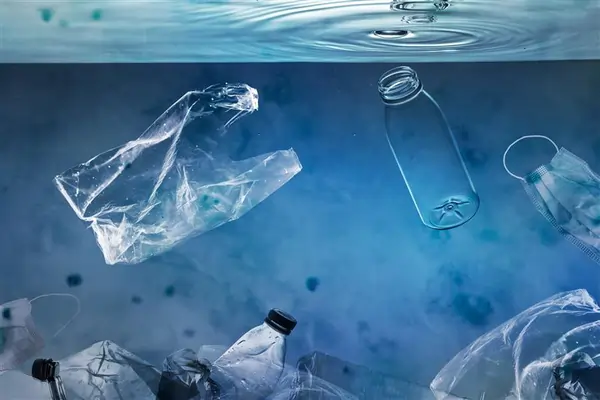According to the International Union for Conservation of Nature, the globe produces about 400 million tons of plastic garbage each year, with at least 14 million tons ending up in the oceans. Plastic pollution in oceans has become one of the most pressing environmental challenges of our day, causing tangled sea turtles and smothering coral reefs.
However, a recent innovation by Japanese researchers has the potential to flip the trend. Scientists from the RIKEN Center for Emergent Matter Science and the University of Tokyo have discovered a biodegradable plastic that dissolves in seawater within hours, suggesting what could be a viable plastic pollution solution for marine ecosystems.

Scientists in Japan have developed a groundbreaking biodegradable plastic that dissolves in seawater in hours, potentially revolutionizing the fight against marine pollution. Unlike prior options, this material dissolves quickly, giving it a potential alternative to typical plastics that harm marine life.
Researchers from the RIKEN Center for Emergent Matter Science and the University of Tokyo demonstrated that this biodegradable plastic entirely dissolves, making it excellent for use in marine environments. This suggestion could be a significant step in protecting ecosystems from the harmful consequences of plastic waste.
Unlike previous types of eco-friendly plastic, which might take months to breakdown and require industrial composting, this new substance degrades fully in natural seawater. Even better? It leaves no microplastics or hazardous waste behind, making it a truly ocean-safe plastic.
The key lies in its unique chemical structure, which reacts quickly with saltwater. This development could be a game changer in decreasing plastic pollution in oceans, particularly for products that frequently end up there, such as fishing gear, food packaging, and single-use bags.
Here's how marine biodegradable plastic can transform the game:
Sustainable Packaging: This plastic is ideal for industries wishing to lower their environmental impact while preserving product safety and shelf life. Furthermore, according to Acumen Research and Consulting, the Sustainable Packaging market was worth USD 254 billion in 2022 and is expected to reach USD 528 billion in 2032.
Ocean Shipping: Cargo companies may use it to wrap cargo and prevent waste lost at sea during transit.
Ocean Energy: Offshore installations could benefit from eco-friendly plastic that degrades naturally if lost during underwater operations.
Marine Biodegradable Polymers for Fisheries Products The market is quickly developing, with more fishers utilizing biodegradable plastic for nets, ropes, and packaging, hence reducing harm to marine life. According to Acumen Research and Consulting, this market is expected to grow at a 5.5% CAGR between 2023 and 2032.
These findings underline the critical need for scalable, long-term plastic pollution solutions.. The new plastic that dissolves in seawater is exactly that kind of solution.
According to the study, the plastic is constructed of a unique polyester blend that reacts with water molecules and salt ions, resulting in harmless byproducts such as carbon dioxide and water. Laboratory simulations revealed that the material dissolves in just a few hours, outperforming standard biodegradable plastics
Unlike other eco-friendly plastics, this one decomposes naturally in seawater without the need for high temperatures or microbial activity. This makes it ideal for usage in open marine environments where cleanup and recycling are nearly impossible.
Scientists have developed a revolutionary biodegradable plastic that dissolves in seawater in hours, providing a cutting-edge answer to the growing problem of plastic pollution in oceans. This new plastic that dissolves in seawater and breaks down faster than previous eco-friendly alternatives, leaving no toxic residues.
This technique might significantly reduce marine pollution and safeguard endangered ecosystems throughout the world.
Environmentalists and green technology businesses have welcomed this development as a significant innovation. While large-scale production is still in its early phases, companies in Ocean Shipping and Fisheries are actively looking into trial projects.
Governments, too, are taking notes. Japan's Ministry of Environment has promised funds for additional development and international collaboration to help grow the solution globally.
The emergence of biodegradable plastic represents a watershed moment in the fight against plastic pollution in oceans.. As innovation meets sustainability, this material provides a practical, scalable, and environmentally friendly answer to plastic pollution solution.
With companies ranging from Sustainable Packaging to Ocean Energy embracing eco-friendly plastic solutions, we are finally on track to help our oceans recover. The future is clear—and ocean-safe.